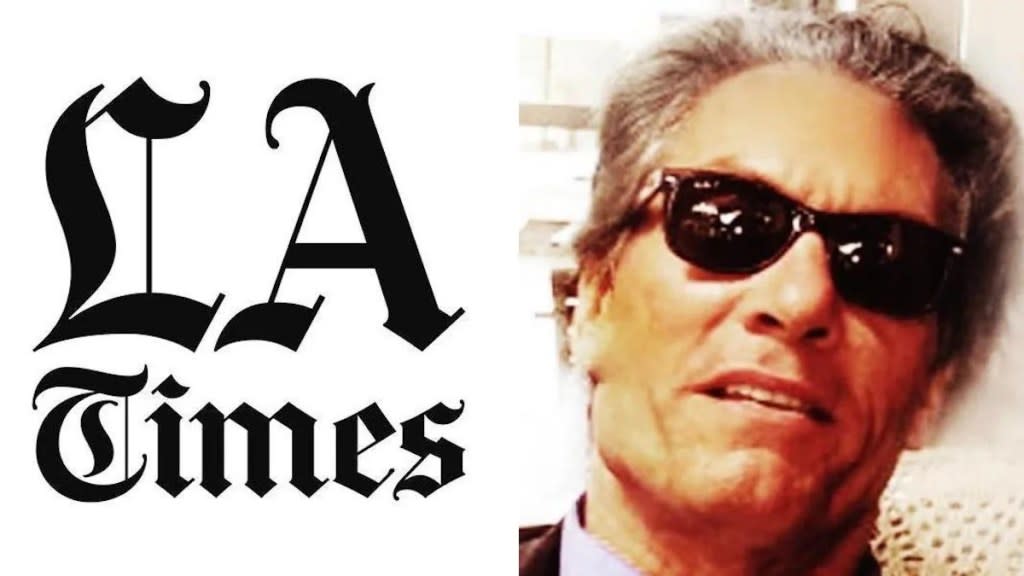Chuck Philips, Pulitzer Prize-Winning Music Writer for LA Times, Dies at 71

- Oops!Something went wrong.Please try again later.
- Oops!Something went wrong.Please try again later.
- Oops!Something went wrong.Please try again later.
Chuck Philips, the renowned Los Angeles Times journalist who made a name for himself by investigating corruption in the music industry, died in January at age 71. No cause of death has been given. His brother Dan confirmed his death.
Philips was known for his deep dives into the music industry. He and Michael A. Hiltzik shared a 1999 Pulitzer Prize for a series of pieces about corruption, and many readers knew Philips from his years-long reporting on the murders of Tupac Shakur and Notorious B.I.G.
“Our brother, Chuck Philips, left us all in January of 2024. He had been an investigative reporter dealing with crime and corruption in the music industry while working for the Los Angeles Times,” Philips’ family said in a statement in the Times’ announcement. “People claim he did not want an obituary so this will be short. Chuck sought the truth. He was an extremely talented and driven individual. His family and friends will miss him very much. His passing was so sad. Good Bye Brother.”
Philips was born October 15, 1952, near Detroit, Michigan. He moved to Los Angeles at 19 and earned his B.A. in journalism at California State University, Long Beach. Philips joined the Los Angeles Times as a freelancer in 1990 and came on board the paper’s staff five years later.
Philips was relentless in his pursuit of the truth, and in 1991 he wrote an article that peeled the layers back on sexual harassment in the music industry, particularly at Geffen Records, RCA Records, and Island Records.
Philips also penned several pieces about the murders of Shakur and Notorious B.I.G. As he told MTV News in 2008, the story “fascinates me.” In 2002, Philips claimed that the “Gimme the Loot” rapper gave the Crips the gun that killed Shakur in September 1996. His family denied the claim.
In 2008, Philips penned a second piece in which he claimed that both Sean “Diddy” Combs and Notorious B.I.G. knew about the 1994 ambush of Shakur in New York City ahead of time. He also wrote that the attack itself was organized by talent manager James Rosemond (also known as Jimmy Henchman). The claims were sourced from anonymous contributors and FBI documents, the latter of which were later proven to be fake.
The fake documents were submitted to federal court by promoter James Sabatino, a discovery that resulted in the LA Times deciding to completely retract Philips’ story. Philips insisted that the details in the documents were corroborated by other accounts he’d heard firsthand.
Philips explained at the time that he “approached this article the same way I’ve approached every article I’ve ever written: in pursuit of the truth. I now believe the truth here is that I got duped. For this, I take full responsibility and I apologize.”
He was later let go in a round of layoffs at the paper in July 2008.
In 2011, Philips demanded that the paper apologize for the retraction, which he said devastated his career after a previously unnamed source backed up what the journalist wrote in his 2008 piece. Philips told LA Weekly, “I want them to run a front-page retraction. Same size, same place.”
In a 2012 Village Voice piece titled “Tupac Shakur, the Los Angeles Times, and Why I’m Still Unemployed: A Personal History by Chuck Philips” he wrote, “I based my piece on exclusive interviews with the men that attacked Shakur, who had never before spoken to a reporter, and with other New York gangsters familiar with the attack — all of whom verified the rapper’s assessment of who had set him up.”
He continued, “The report was accompanied by FBI-302s I had obtained from a case file in a Florida court months after finishing my investigation, official documentation that supported some of what my interviewed sources had told me earlier.”
He added, “Henchman and his lawyer, Jeffrey Lichtman, waged an aggressive online campaign attacking my credibility … Henchman circulated lies about me online while his lawyer badgered my bosses at the Times with menacing calls. He Fed-Exed lawsuits he threatened to file, but never did. He didn’t have to. The Times caved into his bullying.”
Philips also asserted that the fake documents were “probably a set-up” and “I was laid off the same afternoon that Henchman agreed to sign a secret out-of-court settlement with the Times. I was allowed to apply for a buyout and informed that I could tell people it was my own decision to leave. My termination was widely viewed as a nod to Henchman.”
The LA Times told the Village Voice “No new information has emerged that bears on the mistakes for which we apologized and which we retracted.”
The post Chuck Philips, Pulitzer Prize-Winning Music Writer for LA Times, Dies at 71 appeared first on TheWrap.

